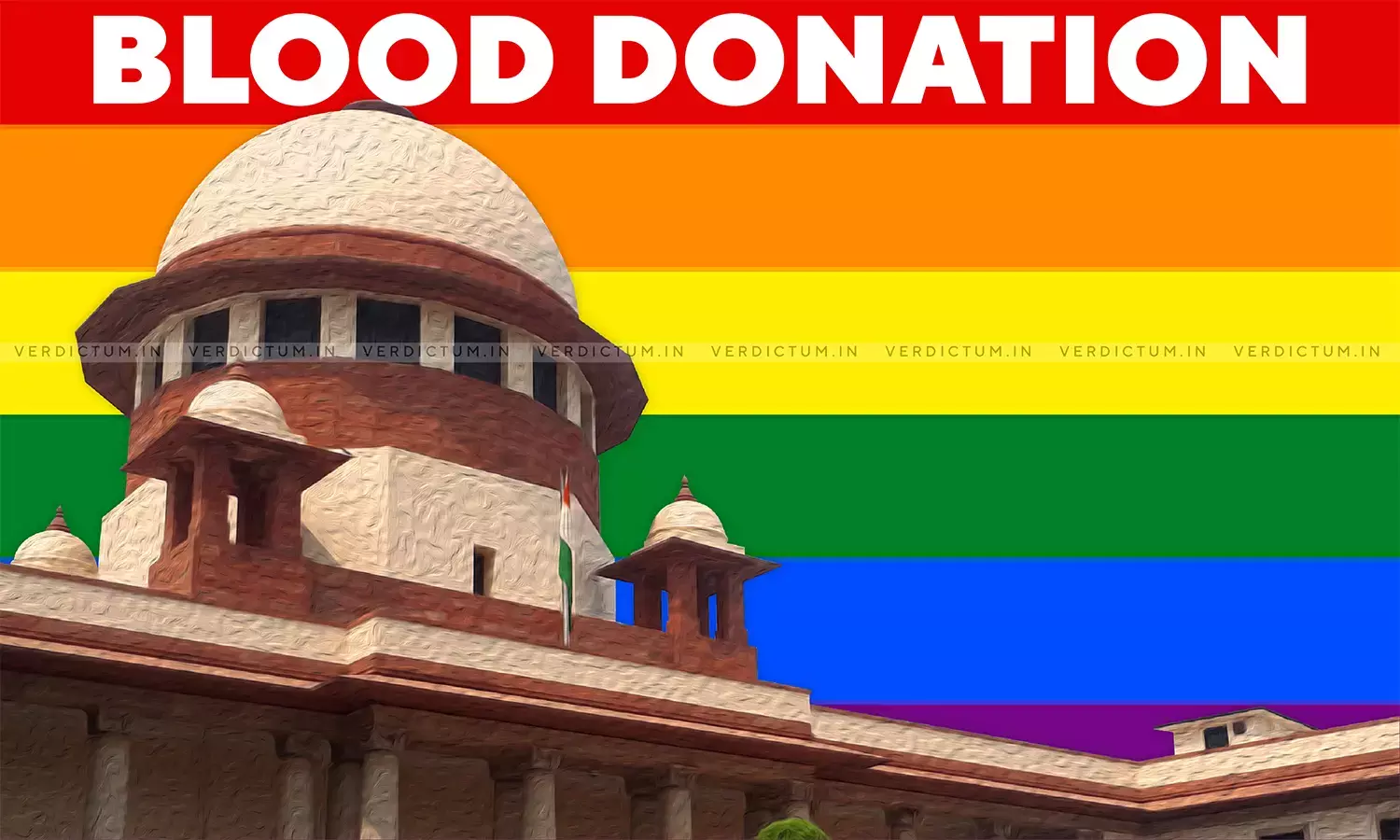Feeling Of Exclusion Shouldn't Come, But Medical Parameters Shouldn't Be Compromised: Supreme Court On Blood Donation By Transgender Persons

The Supreme Court today remarked that the Central Government need to address concerns of stigmatisation resulting from the exclusion of transgender persons from being blood donors, without compromising medical parameters and safety measures. It asked the Central Government to consult experts to find a solution.
The Bench of Justice Surya Kant and Justice N. Kotiswar Singh was hearing a PIL on the subject.
Additional Solicitor General Aishwaraya Bhati, appearing for the Central Government, told the Supreme Court that a detailed counter affidavit has been filed by the Central Government.
"It has to be seen, not from the prism of individual rights, but from the prism of public health", the ASG submitted.
She added, "It is a decision made by Doctors and experts on the basis of the risk viability. There is a National Blood Transfusion Council, which consists of expert Doctors. Somebody cannot say that I have a right to donate blood. There is no right to donate blood. This has to be seen from the prism of safe public health mission and practices. Because, this blood is then made available to everyone. They (petitioners) have given some examples of European countries etc., where these groups do not exist as high-risk groups".
Justice Surya Kant then asked if donations by such persons can be accepted with knowledge of the donee. He asked, "Suppose there is an informed knowledge, somebody in need of blood, he is well informed, medically warned that this is an element of risk.....".
The ASG responded, "That is on a one-to-one basis, there is no difficulty. Relative or family member or friends... This will go to the blood bank".
Justice Surya Kant then told the ASG, "The element of discrimination... they have been isolated and excluded- that feeling does not come, and at the same time, the medical parameters are not compromised. Think of something".
The ASG responded, "World over, except for very few countries that have a very good mechanism of testing.... We have to look at the Indian reality, what is the mechanism of testing that is available to the length and breadth of the country. It is a guideline only that we have issued. It is in the interest of safe blood being available in blood bank mechanism. It is really not to violate any individual rights".
Justice Kotiswar Singh then intervened to say, "What is worrying me is, are we going to brand all transgenders as risky and thus indirectly stigmatise this community. Unless you can show with some medical evidence, of course, we are not questioning the views of the experts, that there is a link between transgenders and this kind of diseases, I don't know. You can't say all transgeners are involved in that kind of sexual activity. Any normal person also engages in that kind of sexual activity..... Therefore, are we creating a kind of segregated group, stigma also increases. Transgenders already suffer from some of kind of biases and prejudices, it is enhanced... I am just wondering".
Justice Surya Kant then said, "These things only experts can advise us. You please hold a talk with them. What can be the way out, such that as a community they are not stigmatised, at the same time, these medical precautions and safety measures can also remain in force, without compromising them. Only stigmatisation part needs to be addressed. What can be the way out?"
The ASG submitted, "This is blood that is going to people who are otherwise vulnerable. So the risk factors have to be carefully considered".
Justice Surya Kant agreed with the ASG, saying, "The chances of infection are much higher".
The ASG then submitted, "Therefore, if your lordship will see this from the perspective of public health requirements of the nation and the reality of the nation, your lordships will appreciate that the purpose is not to identify anyone or stigmatise anyone in any manner. It is to take the best possible scientific and medical evidence that is available today".
The Court then asked the Central Government to hold a discussion with experts and come back. The Court clarified that it is reluctant to opine on the subject since it is a matter for experts and that it does not want to impose itself as "super experts".
In August last year, the Supreme Court had issued notice in a Writ Petition by a gay man challenging the constitutional validity of the 2017 Guidelines on Blood Donor Selection and Blood Donor Referral issued by the National Blood Transfusion Council (NBTC) and the National AIDS Control Organization (NACO), Ministry of Health and Family Welfare, Government of India.
The Apex Court had then directed that the matter be listed with the present Writ Petition.
Cause Title: Thangjam Santa Singh @Santa Khurai v. Union of India & Ors. (W.P.(C) No. 275 /2021)

